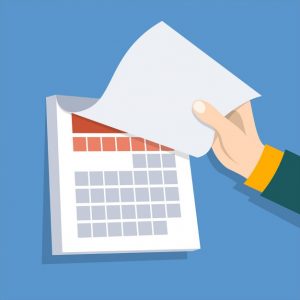
Did the strike of Big Ben at midnight on NYE make you think that you need to make changes in your career? You’re not alone! Many people tend to start thinking about a big change and upheaval for the New Year.
It goes without saying that last year was a bumpy ride! It’s been a tough time for everybody, but we want to help you bounce into 2023 with your career goals in sight and ready to be aimed for!
January is often a time that businesses will be planning to freshen their team, move in new directions and create roles. This is still the case; businesses are moving into the new year with lessons learned from the previous year. Now is the time to start looking around and seeing what you can do to change, adapt and improve your career.
If you’re looking for a total career change, you can find out more advice here.
First: Let’s get that CV up to date
We recently wrote some tips for Graduates about how to structure a CV, but these could help you as a more experienced employee, too.
We have more detailed advice on writing and structuring a CV here.

Tips for a great CV
- Ideally, your CV should ideally be no more than two/three sides of A4.
- You should always include your full name, contact email, address and mobile number at the top of your CV. You do not need to include a photograph or date of birth.
- Start with a brief introduction to yourself. Keep it as simple as possible; highlight specific skills that the job advert mentions. Employers will scan this first so make sure it stands out.
- Career highlights: Sales people should quote their best performance in here vs targets, increase in client base, business wins etc.
- Next, it’s time to put your work experience in. Start with your most recent role. You’ll need to include the dates you worked in this role, employer name and your job title. Use bullet points to highlight your key responsibilities and make sure that you include transferable skills.
- After your work experience, highlight your skills and achievements. Are you able to use the MS Office Suite? Have you learned any coding languages? Can you speak another language? Look back at the job description and think about what you have that fits.
- Add your education – keep it brief to grades and subject titles.
- Add a bit about you. Who are you? What do you enjoy doing? Show that you’re an interesting person who could bring a new dynamic to the business and the team.
- Add your references. Available on request is pretty standard, and fine. If you want to quote an individual that’s fine too
- Ensure your CV is formatted and readable. Avoid fonts that are native to your computer and, of course, avoid Comic Sans! Use Arial or Calibri to ensure consistency. Use headings. Make sure the font isn’t too small or too big – aim for size 10/12.
Next: Write an engaging cover letter
Your cover letter is a great way to highlight your interest in the role and demonstrate your suitability to separate you from other applicants. It’s important that it’s personal to you and shows the prospective employer your specific skills and experience that make you the perfect candidate for the job.
A well written cover letter will help secure interviews, even if at times your CV lacks experience. It’s your opportunity to impress an employer and make a positive impact before they even get to your CV.
Find out more advice about writing your cover letter here.
Finally: Speak to an expert!
That’s where we come in! We can write loads of content and blogs about how to apply for a new job, but the best way for us to support you is to speak to us! We only work with employers and candidates who we know and can advise properly. After all, this is your job we’re talking about!
Our recruitment consultants are still on hand and remain fully committed to helping our candidates find their dream roles. Contact us today on 0114 321 1873 or eyup@glurecruit.co.uk to see how we can help kickstart your job search in 2023.